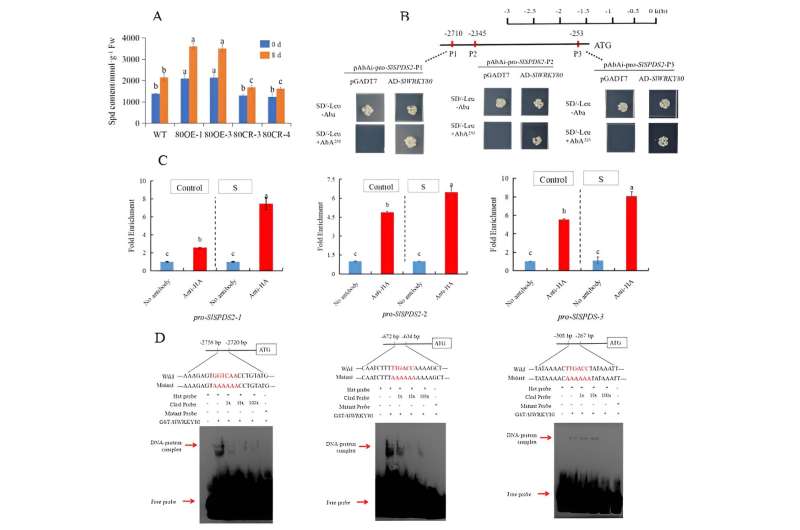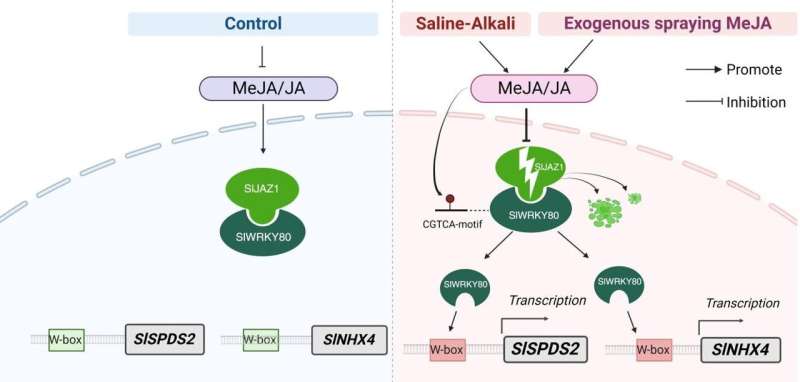This article has been reviewed according to Science X's editorial process and policies. Editors have highlighted the following attributes while ensuring the content's credibility:
fact-checked
trusted source
proofread
Research confirms exogenous methyl jasmonate can enhance tomato resistance

Tomato (Solanum lycopersicum L.) is the most widely cultivated and consumed horticultural crop. At present, saline-alkali is an important abiotic stress source that affects tomato production. Exogenous methyl jasmonate (MeJA) can enhance the resistance of tomatoes to various stresses, but its exact mechanism is still unclear.
Horticulture Research
has now published new research titled "SlWRKY80-mediated jasmonic acid pathway positively regulates tomato resistance to saline-alkali stress by enhancing spermidine content and stabilizing Na+/K+ homeostasis."
In this study, researchers confirmed that 22.5 μmol/l MeJA could significantly improve the saline-alkali stress resistance of tomatoes. Saline-alkali stress increased the endogenous MeJA and jasmonic acid (JA) contents. Exogenous application of 22.5 μmol/l MeJA increased the endogenous MeJA and JA contents in tomato.
Furthermore, an important transcription factor, SlWRKY80, responded to MeJA and actively regulated tomato resistance to saline-alkali stress. Spraying of exogenous MeJA (22.5 μmol/l) reduced the sensitivity of SlWRKY80 knockout lines to saline-alkali stress.

In conclusion, exogenous MeJA in tomato stress resistance through multiple metabolic pathways elucidated that exogenous MeJA further promotes spermidine synthesis and Na+/K+ homeostasis by activating the expression of SlWRKY80, which provides a new theoretical basis for the study of the JA stress resistance mechanism and the actual production of tomato.
More information: Chunyu Shang et al, SlWRKY80-mediated JA pathway positively regulates tomato resistance to saline-alkali stress by enhancing spermidine content and stabilizing Na+/K+ homeostasis, Horticulture Research (2024). DOI: 10.1093/hr/uhae028
Provided by NanJing Agricultural University





















